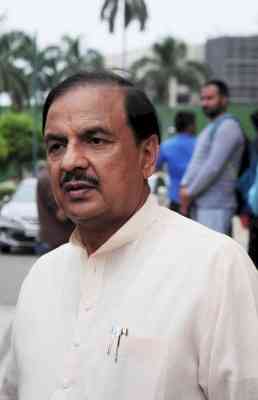FASII’s national president Badish Jindal raises important issues in CBT of EPF meeting

Ludhiana, February 27, 2013: The 201st meeting of the Central Board of Trustees of the Employees’ Provident Fund (CBT of EPF) was held under the chairmanship of the Union Labour Minister Mallikarjun Kharge at the EPF Head Quarters in Bhikaiji Cama Place in New Delhi on February 25.
Kodikunnil Suresh, Union Minister of State for Labour, Dr. Mritunjay Sarangi, Secretary, Govt. of India, Ministry of Labour and Anil Swarup, Central Provident Fund Commissioner(CPFC) and a host of senior Govt. of India and State Government Officials were present in the meeting.
The newly inducted Member of the CBT of EPF, FASII’s National President Badish Jindal also marked his presence at the meeting.
This was the first meeting participated by Jindal after having been inducted as a Member of the CBT of EPF.
The Union Labour Minister Mallikarjun Kharge greeted Jindal at this first meeting of Jindal and Anil Swarup, CPFC, presented a bouquet to Jindal. Badish Jindal submitted the following points in the meeting.
Pointing to the huge litigations (about 15,000 cases) pending in various courts of India regarding EPF Recovery/Assessment/Damages etc, Jindal suggested for introduction of an “One Time Settlement Scheme” which he said would save and salvage legal expenses and the precious time of both the Employees’ Provident Fund Organisation (EPFO) and the Stakeholders. The CBT of EPF appreciated and taken note of the suggestion.
Further, Jindal said at present, employers have to contribute a minimum of 12% towards EPF on less than or up to Rs 6,500 salary (basic + dearness allowance). A proposal has been pending with the Ministry of Labour for shooting up this salary limit. Jindal stated at the meeting that this ceiling need not be raised atleast at the prevailing economic conditions like recessionary trends, inflationary situation etc as any increase in salary ceiling, he said, would hit the Micro and Small Units severely.
Jindal stated at the meeting that Dearness Allowance was paid to offset the impact of rising cost of essential commodities. It was paid to mitigate the impact of inflation. Further he said that in the present circumstances, an employee had so much demands and pressures to bring more cash/money to his home as cost of education of children, prices of commodities, cost of new essentials like computer, cell-phone etc, cost of transport, cosmetics, medical expenses and other items were ruling high. Therefore, EPF deductions, Jindal sought, should be made only on Basic Salary not on Dearness or any other allowances in order to enable the employee to meet the present trend of high cost expenses.
Pointing to the trend of huge withdrawals by employees from their Employees’ Pension Scheme before their retirement, Jindal opined that this, in fact, was seriously affecting the employees’ post retirement social security. Therefore, he sought that some pre-conditions should be imposed so that the employees did not withdraw any amount from their Pension Scheme. The contribution
towards pension amount, Jindal said, should be exclusively parked for the employees’ post-retirement requirements.

 cityairnews
cityairnews 














